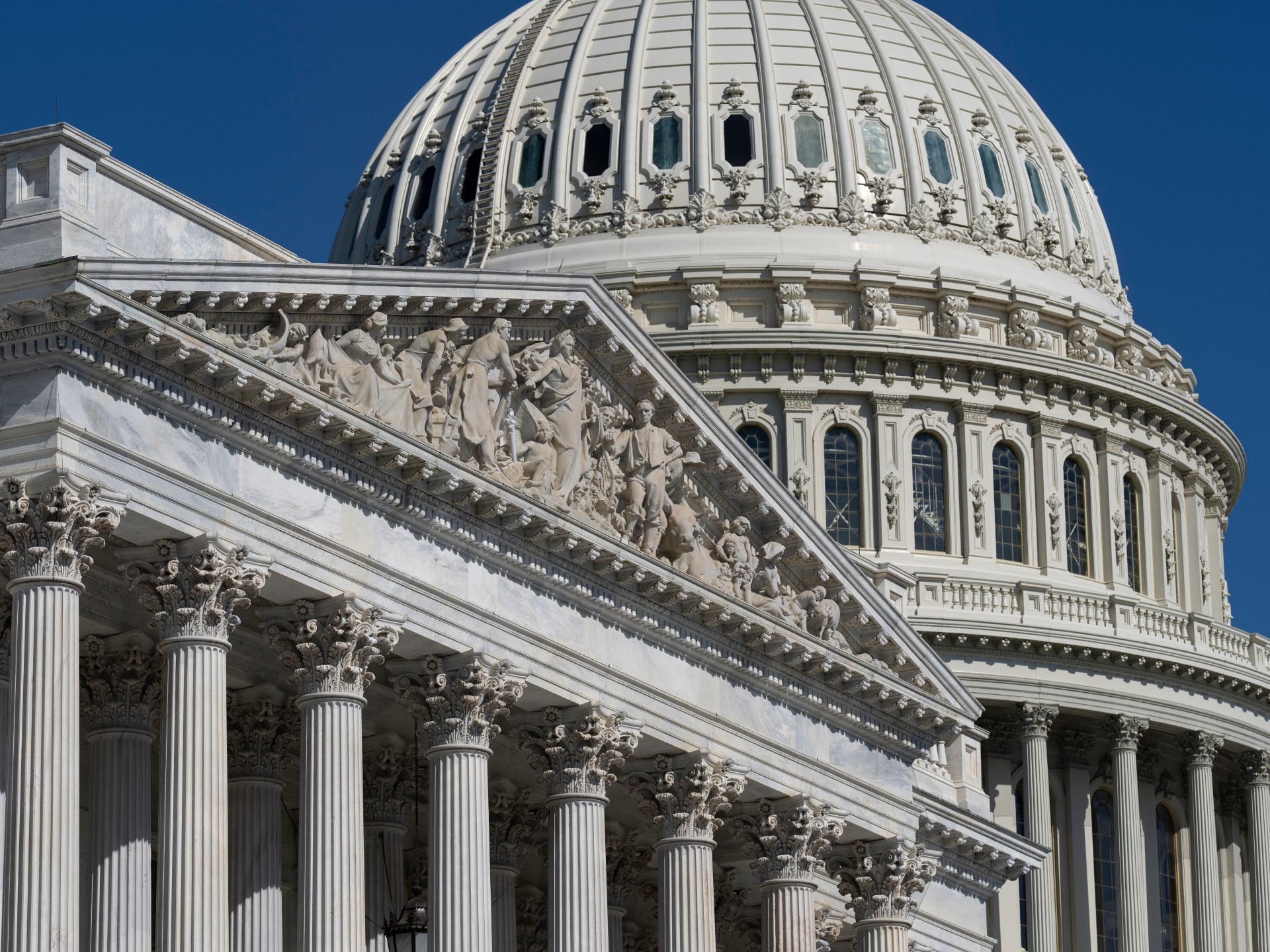US lawmakers pass spending bill to avert government shutdown
House of Representatives also votes to keep the lights on in government facilities for at least another six weeks.
The US Congress has passed a short-term spending bill to thwart a partial government shutdown that threatened the functioning of multiple key federal agencies and could have seen thousands of employees sent home without pay.
With large sections of the government due to close at the end of Friday, the House of Representatives voted 314 to 108 on Thursday to keep the lights on for at least another six weeks, approving a measure that was previously passed by a Senate vote of 77 to 18.
Complicating the negotiations, forecasts for a brutal winter storm curtailed lawmakers’ work, with Congress announcing that it would be closed all of Friday, and as public workers were preparing to be sent home unpaid, upending government functions from military operations to food aid to policymaking.
“We have good news for America: There will not be a shutdown on Friday,” Democratic Senate leader Chuck Schumer said in a speech to colleagues.
“Because both sides have worked together, the government will stay open. Services will not be disrupted. We will avoid a needless disaster.”
The short-term fix was pitched after negotiations on a full-year budget were stalled by the demands of House Republicans for deep spending cuts, tightened border security and strict immigration curbs, before they will consider President Joe Biden’s request for $106bn in supplemental funds, mostly for Ukraine and Israel.
For now, services related to agriculture, energy and water, military construction and veterans’ programmes, transport and housing will be funded until March 1.
The military, Department of Justice, border security, Congress and many other federal agencies and departments were due to run out of money at the start of February but will now be able to function until March 8.
Dysfunction
Even on rare occasions of cross-party unity, Congress can work at a glacial pace.
The inability of lawmakers to pass a full budget for a fiscal year that started almost four months ago has highlighted dysfunction in Congress, which is deadlocked on foreign aid requested urgently by the White House.
Party leaders in the Senate are strong supporters of more aid to support Ukraine in its war against Russia, but many hardliners in the House are sceptical that handing Kyiv more money to repel the two-year-old Russian invasion is in US interests.
Both sides agree that the record number of migrants crossing from Mexico is a crisis that needs to be addressed, although they disagree on the response.
Schumer, the leader of the Democratic Senate majority, aims to introduce a bipartisan border security and foreign aid bill next week, although Republican Speaker Mike Johnson has refused to commit to bringing the bill to the House floor.




